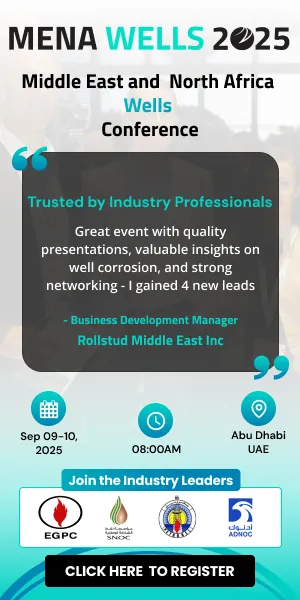Abu Dhabi-based Al Masaood Power Division, a key arm of the prominent Al Masaood Group, is debuting groundbreaking decarbonisation technology from its long-term global partner, Volvo Penta, at the 49th Middle East Energy exhibition and conference.
The event, slated for April 7-9 2025, at the Dubai World Trade Centre, promises to be a pivotal gathering for energy industry leaders, offering a platform to engage with top-tier energy providers, discover transformative innovations, and forge lasting business ties.
At booth H7 E10, Al Masaood Power Division will spotlight Volvo Penta’s latest advancements, including a scalable battery energy storage subsystem and a hydrogen dual-fuel engine. The battery subsystem, tailored for industrial use, boasts energy-dense batteries capable of rapid charging and discharging. Designed to balance power and efficiency, it aims to meet the diverse operational and commercial needs of modern businesses.
Focus on renewables
Meanwhile, Volvo Penta’s hydrogen dual-fuel solution, built on its Stage V D8 combustion engine, blends hydrogen with diesel to offer a flexible, forward-thinking option for companies navigating the shift toward sustainable energy. This follows the company’s broader push into renewable fuels, with its combustion engine platform already certified for hydro-treated vegetable oil (HVO). Models like the D17 genset engine are also in line for further renewable fuel enhancements, signaling Volvo Penta’s commitment to greener technology.
The Middle East Energy exhibition continues to serve as a vital hub for showcasing solutions that are reshaping the global energy landscape. For Al Masaood Power Division and Volvo Penta, this year’s event marks a significant opportunity to demonstrate how innovation can drive decarbonisation while meeting the region’s evolving energy demands.
Rasso Bartenschlager, general manager, Al Masaood Power Division, said, “Al Masaood Power Division remains committed to contributing to a net-zero future through low-emissions, high-performance solutions. The products we are showcasing from Volvo Penta are aimed at doing just that – they are designed to be reliable and high performance while supporting evolving energy needs . We are pleased to be here at Middle East Energy as it is a key platform in our goal to help achieve a greener future for both Abu Dhabi and the UAE.”
Hannes Norrgren, president industrial, Volvo Penta, said, “We place a strong customer-first focus in our decarbonisation strategy, from ensuring that our combustion engines are emissions compliant and ready for renewable fuel adoption in the near future, to co-engineering reliable and high performing battery energy storage subsystems that are fit for purpose. Presenting our solutions with Al Masaood Power Division at Middle East Energy is an excellent opportunity to highlight the progression of our sustainable power generation solutions among industry peers and energy providers from around the world.”









